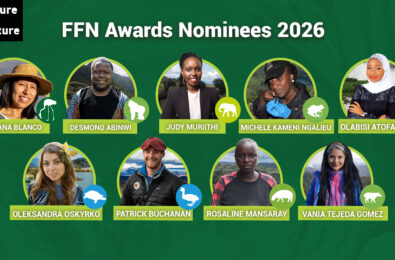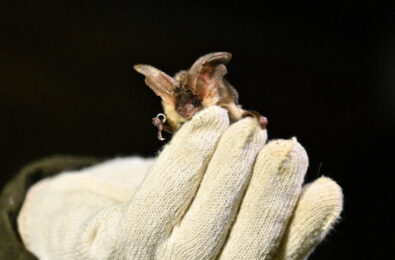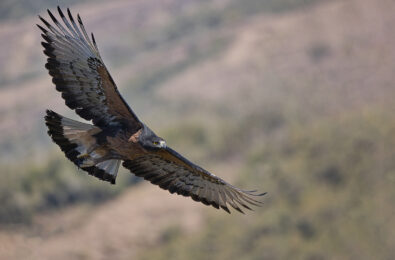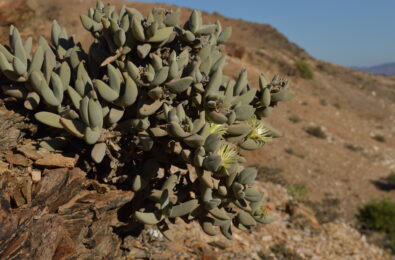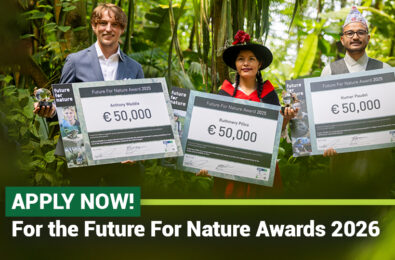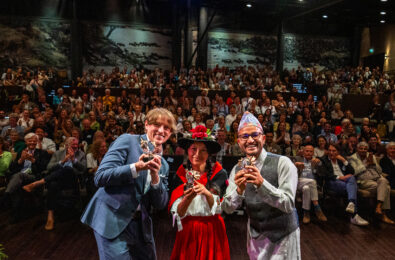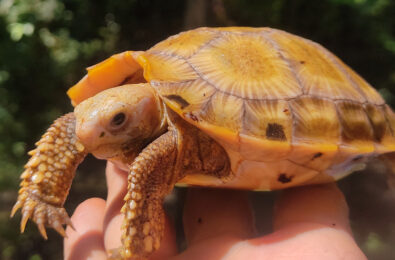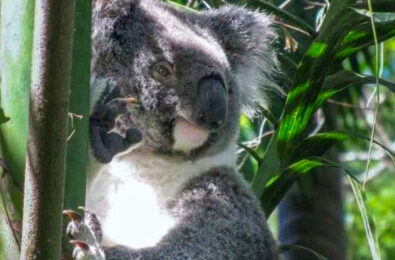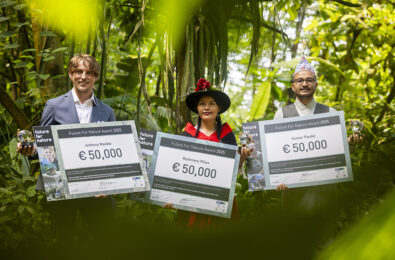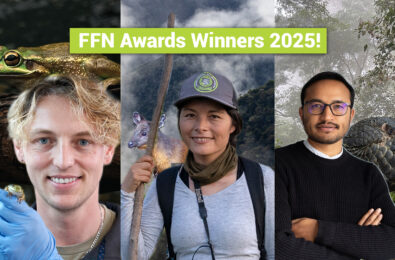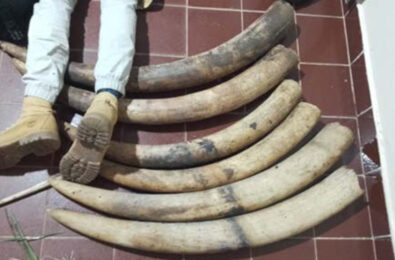Project Reconecta goes international through collaboration of FFN Award winners
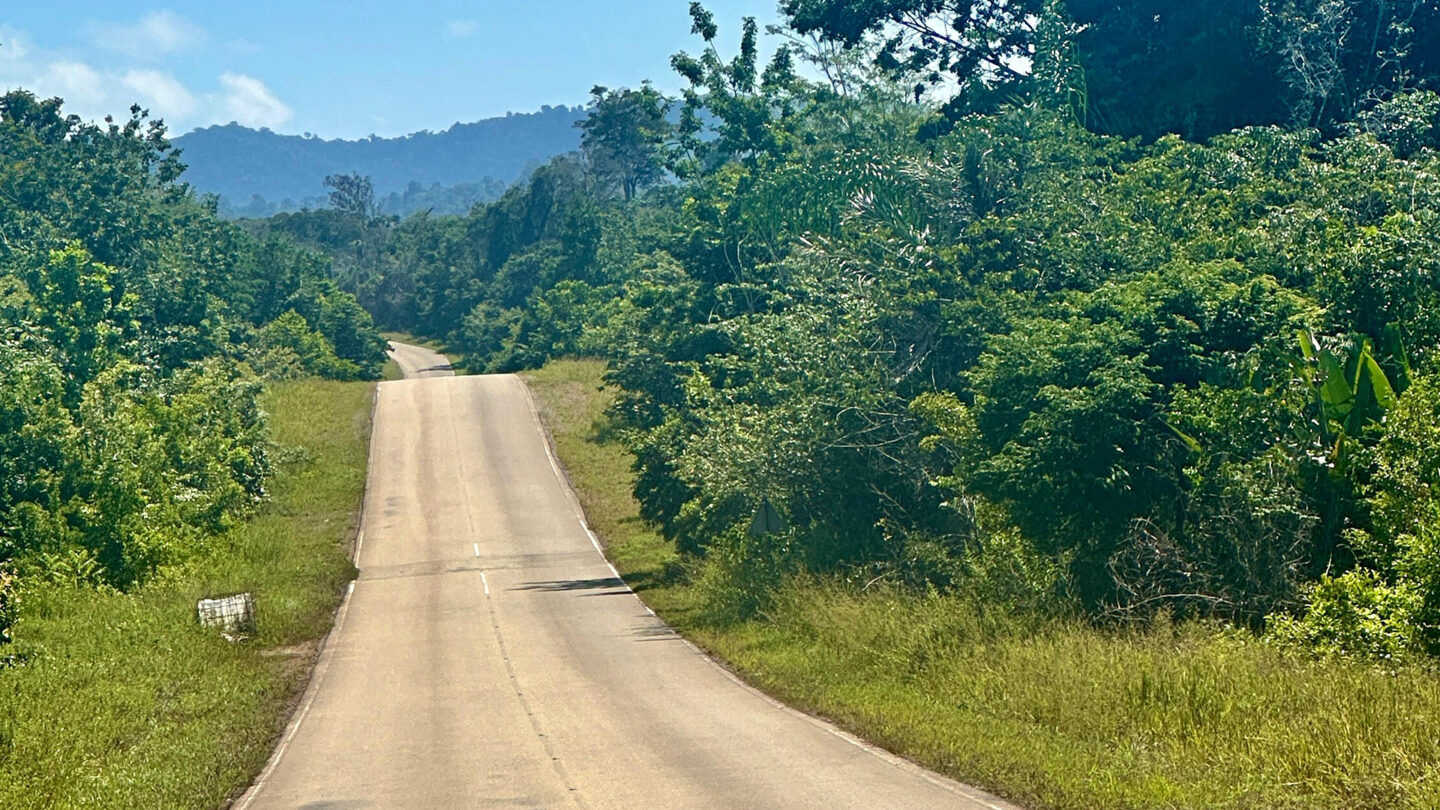
Paved roads in Suriname take a very high toll in wildlife casualties. Data show that reptiles are hit especially hard. Mammals, birds and amphibians are the other main victims.
This is the outcome of the first months of the Reconecta project in Suriname. In July 2024 Award winners Els van Lavieren (FFN winner 2010) and Fernanda Abra (FFN winner 2019) launched this project together. Following the success of Fernanda’s Reconecta project in Brazil. Reconecta Suriname is a copy of the original and is funded by FFN Family funding.
Reconecta Brazil
Brazilian wildlife conservationist Fernanda Abra is concerned about the effects of roads on wildlife in the Amazon forest – particularly on arboreal species – and she is committed to implementing sustainable solutions.
The problem is twofold. In the first place animals become susceptible to being hit by vehicles, when they come down from trees and try to cross the roads. Second, the roads form a barrier for strictly arboreal species that avoid coming down from trees and do not cross the roads. Resulting in population isolation and vulnerability for extinction.
Fernanda and her Reconecta project have been monitoring the wildlife road kills and have implemented canopy bridges for arboreal fauna. Many arboreal mammal species already benefited from the project. In addition, Fernanda has identified ‘road kill hotspots’ and collaborates with the government to reduce the danger for both animals and humans at

Reconecta Suriname starts with collecting data
In Suriname there are three paved roads in a similar ecosystem as in Brazil. Els van Lavieren, FFN laureate, co-founder and Director Conservation and Wildlife Crime of Wildlife & People Suriname in , suspects the road kill on these roads is high, but it has never been monitored structurally. The goal of the Reconecta project in Suriname is therefore to start with collecting data for ten months, to:
- demonstrate the impact of roads on wildlife fatalities
- find out if and how road kills affect wildlife populations
- investigate whether roads interrupt or separate wildlife habitats.

Fernanda and Els selected six field assistants to help them in their mission. They all work as tour guides in Suriname and four of them work for Snake Patrol/Herping Suriname, so they are very knowledgeable about identifying reptiles and in particular snake species. Reptiles were expected and so far also proved to have the highest number of casualties.
After the launch of the project in Paramaribo, Fernanda travelled to Suriname and led a field training. The first data collecting action was guided by her. Every month since then each of the three paved roads in Suriname were monitored for two days. The field assitants drive one way, stay overnight and do their data collection again on the way back. The data collected is then used to extrapolate a monthly average.
The field assistant register all dead animals by specie and take DNA samples for further investigation, when they cannot identify the species on the spot. They also take note of the exact location where they are found. In this way they hope to identify hotspots of road kills, to apply future mitigation measures like canopy bridges in phase 2 of the project.

First results
The results so far show that roadkill mortality is very high in Suriname, higher than the average monthly road kill in Brazil. This is probably due to the fact that Suriname has higher wildlife densities resulting in higher numbers of roadkill per kilometer road.
The landscape analysis of the data has commenced in February and the aim is to present the outcomes of the project at the International Primatological Society conference in July .
Reconecta project Suriname has started in full swing. This was thanks to the preparation of Els and Fernanda and to the team they are working with. The team members are highly motivated, work very independent, know the field very well and have expertise on identifying species beyond expectation.
Els is coordinating and managing the logistics, does planning and financial aspects of the project. This is quite time consuming and she does it on a voluntary basis alongside her other projects in Suriname. We are happy and proud to fund Reconecta Suriname.
Read more about the Reconecta project here.






